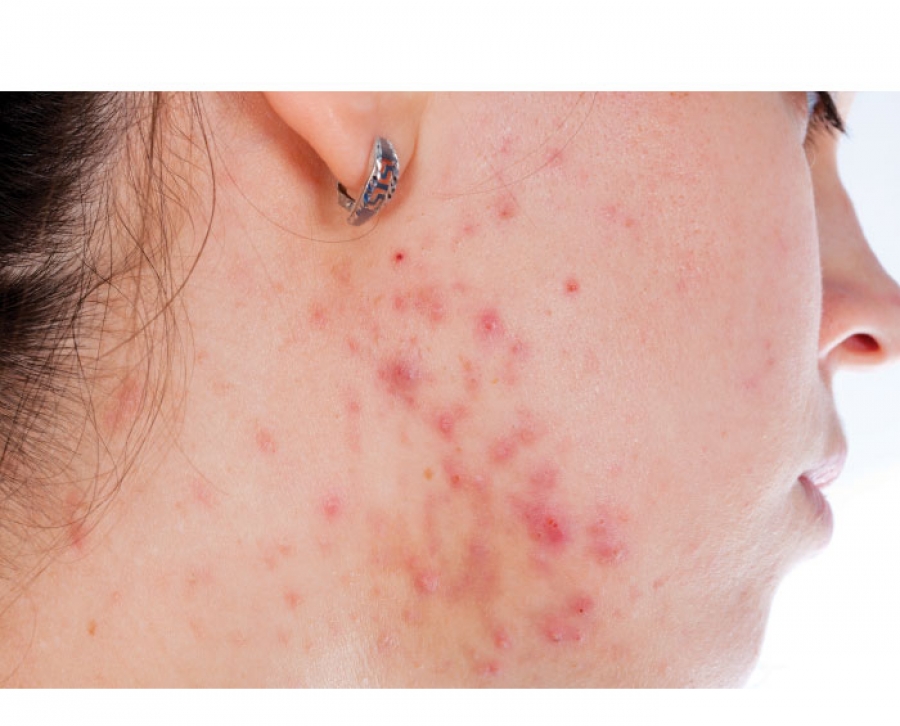WHY ACNE DISCOLORS THE SKIN
The skin has its own immune system. When it encounters a wound, that immune system kicks in and works to repair the damage, often causing post-inflammatory hyperpigmentation.
People who suffer from acne often experience post-inflammatory hyperpigmentation and are left with dark spots on their skin where the blemishes associated with acne were once located. The more damaged the skin is by the acne, the darker and larger the dark spot is likely to be. Popping and picking acne blemishes causes more damage to the skin, thus further aggravating post-inflammatory hyperpigmentation and the dark spots that it causes.
TREATING DARK SPOTS CAUSED BY ACNE
Clients can take comfort in knowing that dark spots left behind by acne are not permanent. In time, they will begin to fade; however, it can take quite a while for those dark spots to diminish.
Fortunately, there are steps clients can take to speed up the lightening process. The best treatment option depends largely on the severity of the discolored skin.
Some of the most common and effective treatments for dark spots caused by acne include skin care products, hydroquinone, restorative treatments, and sun protection.
Skin care products: There are countless skin care products that are specially formulated to lighten the dark spots caused by acne.
Hydroquinone: Hydroquinone is a topical cream that lightens the discolored patches that are caused by acne by blocking the enzymes that trigger the production of melanin. This product can be purchased over-the-counter at one to two percent strength; however, a dermatologist can prescribe a higher strength cream of three to four percent.
Restorative Treatments: Treatments such as chemical peels and laser therapy can also help to lighten the scars caused by acne. It should be noted that these restorative treatments have the potential to further aggravate the skin, causing even larger and more noticeable spots.
Sun Protection: The sun can make dark spots caused by acne more pronounced. For that reason, it is important to make sure clients properly protect their skin from the sun. They should wear a broad-spectrum sunscreen with an SPF of at least 30 and remember to reapply often. They can also wear light-colored clothing and wide brimmed hats to shade their skin from the sun.
